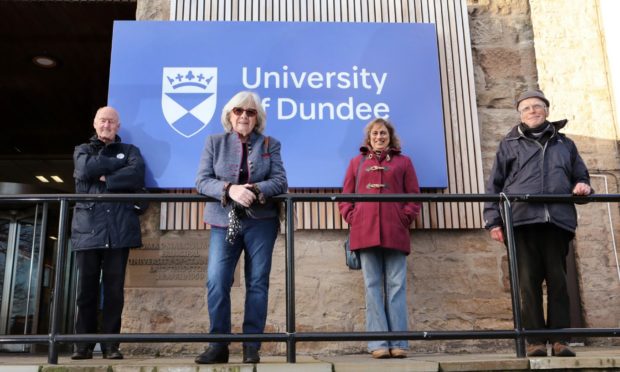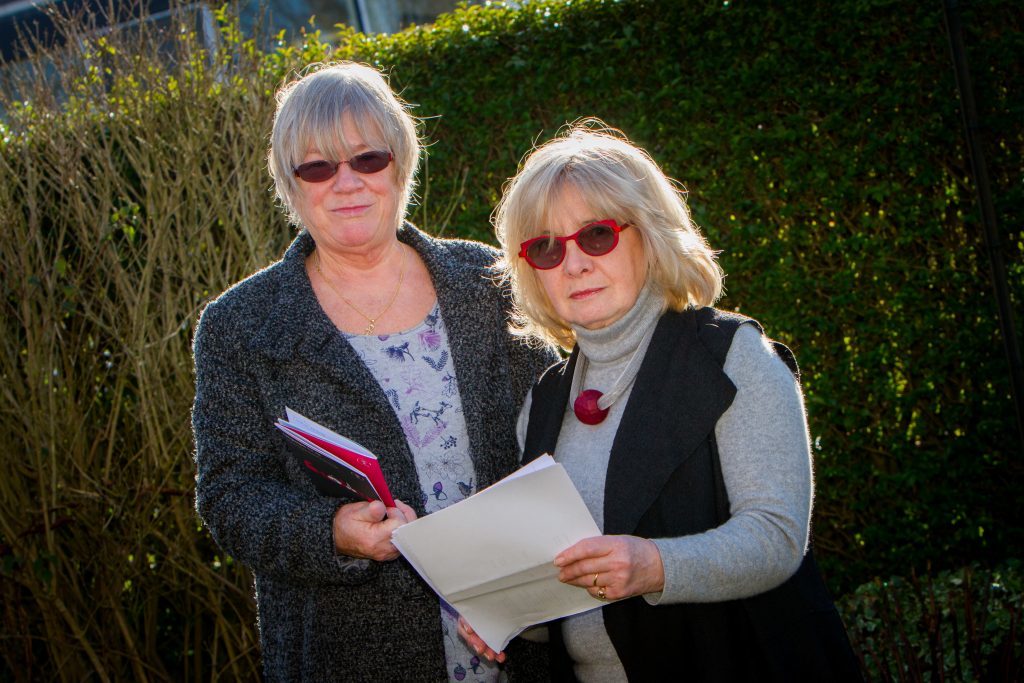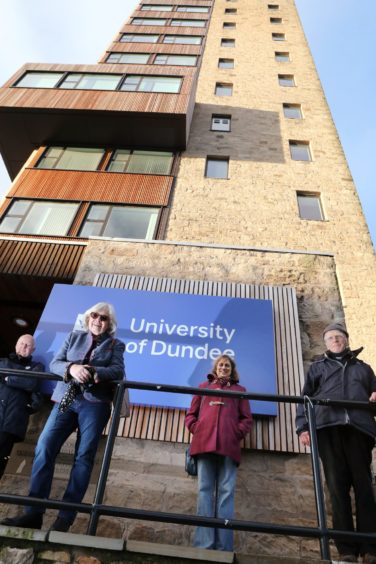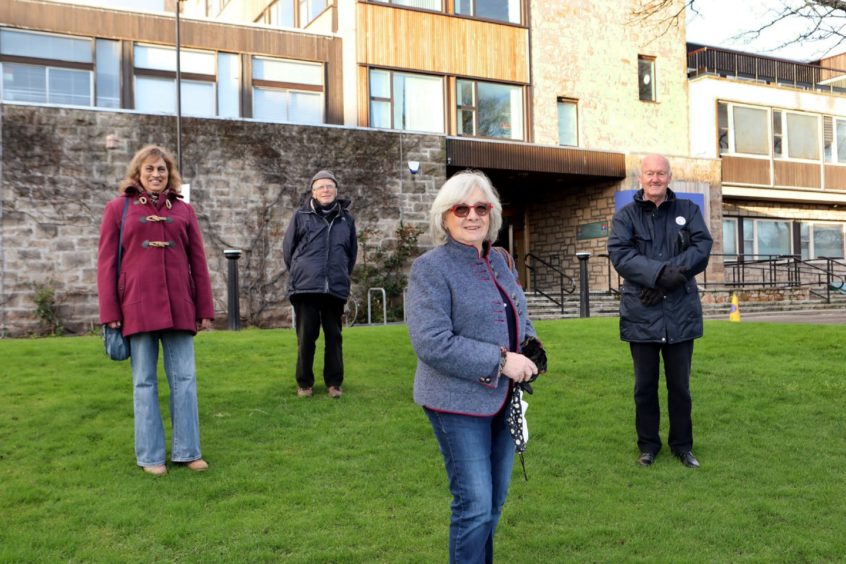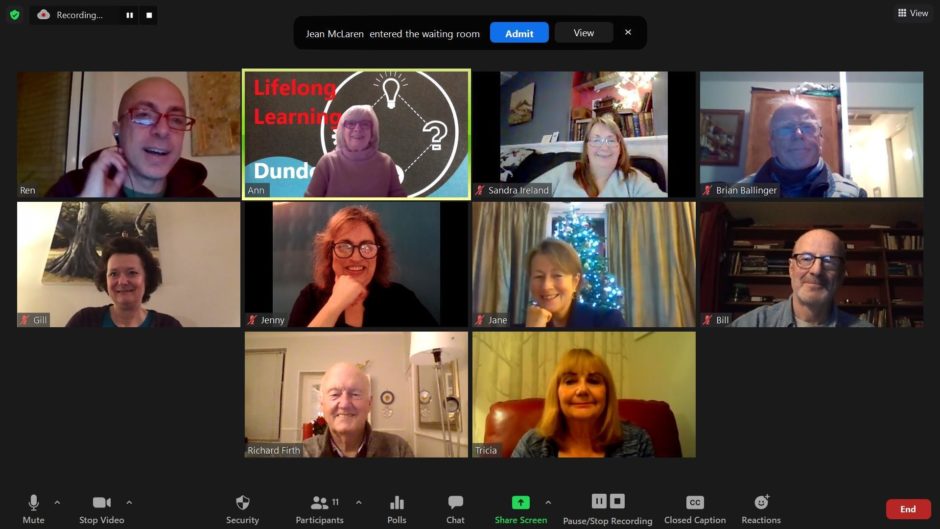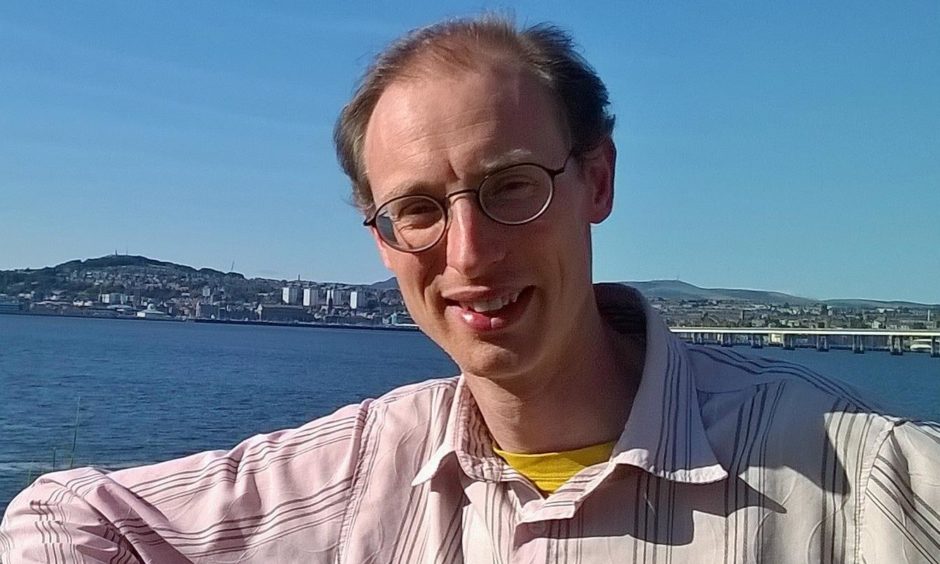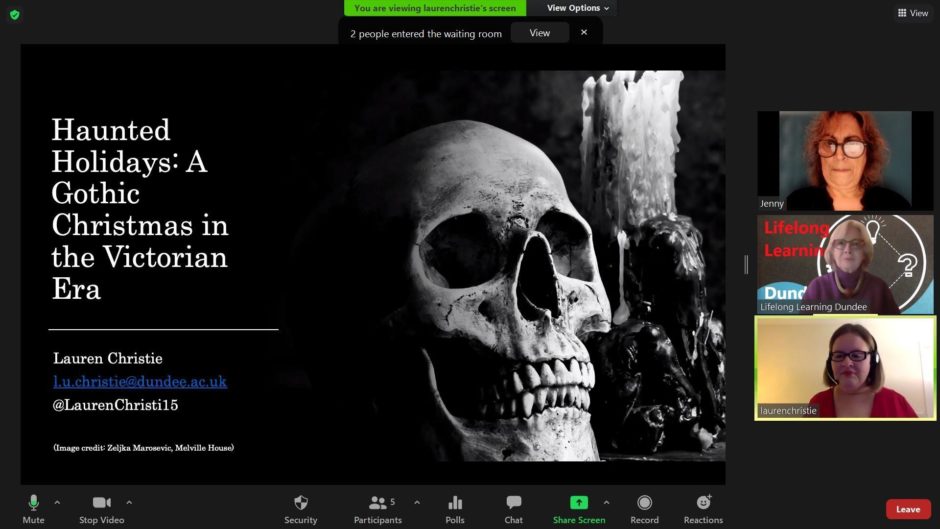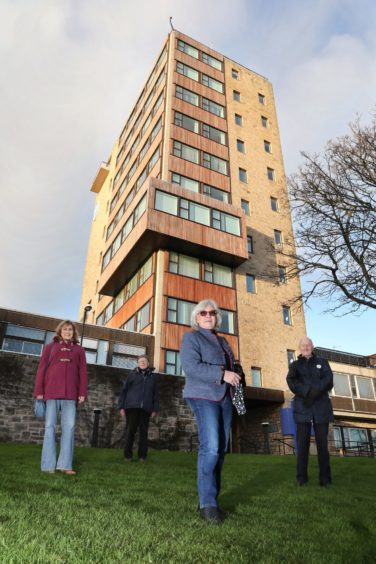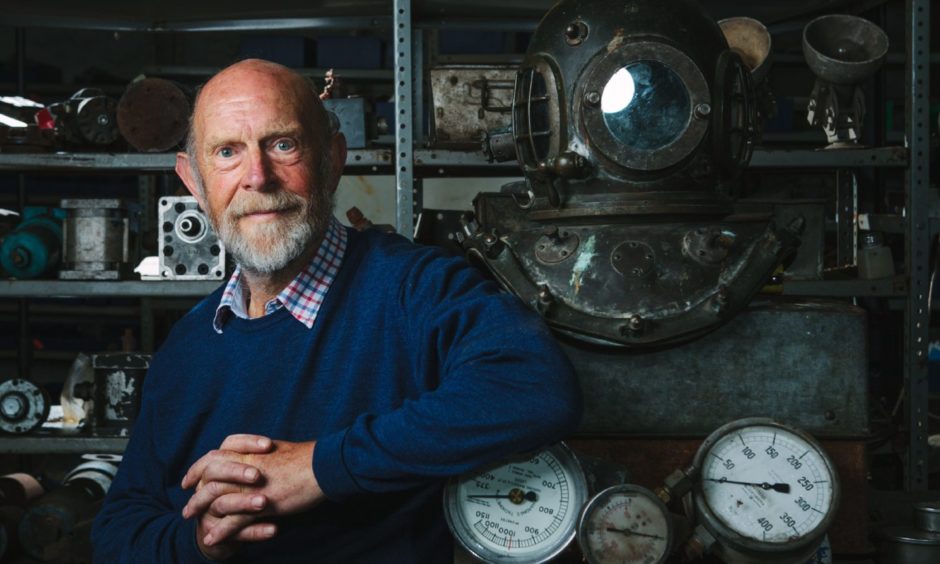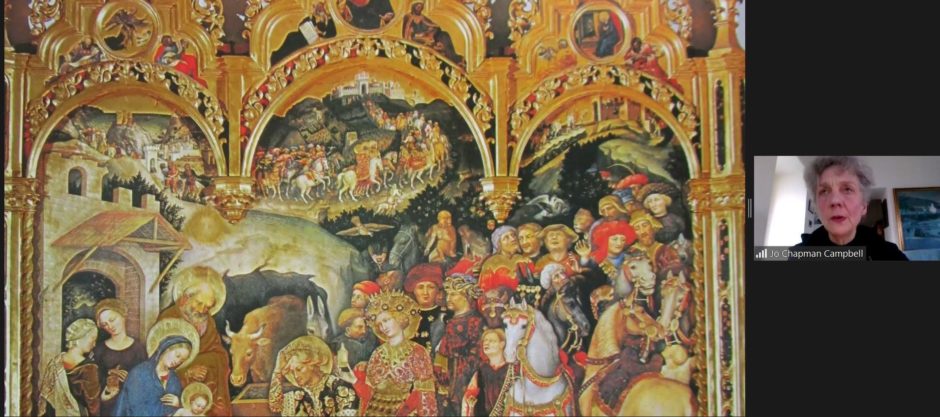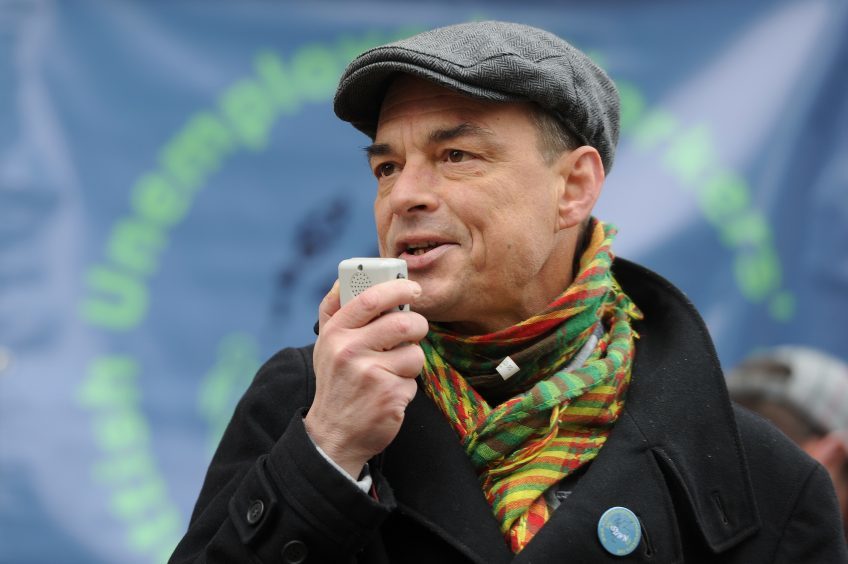Michael Alexander speaks to the chairperson and treasurer of Lifelong Learning Dundee which has been adapting to the challenge of Covid-19 to deliver continuing education classes online while attracting an unexpected audience from around the world.
Lifelong Learning Dundee chairperson Ann Auchterlonie always led an active professional life.
The retired Dundonian, who worked for a spell with Courier publisher DC Thomson & Co Ltd, studied law at Dundee University and was a college lecturer for a number of years in Dundee and Angus before moving into the education directorate at Dundee’s former Tayside House then over to Fife where she worked until the end of her career.
Retiring early, she had what she describes as a portfolio career, involving the voluntary sector, the BBC, educational quangos…and latterly, Fitness to Practice tribunals for the General Medical Council.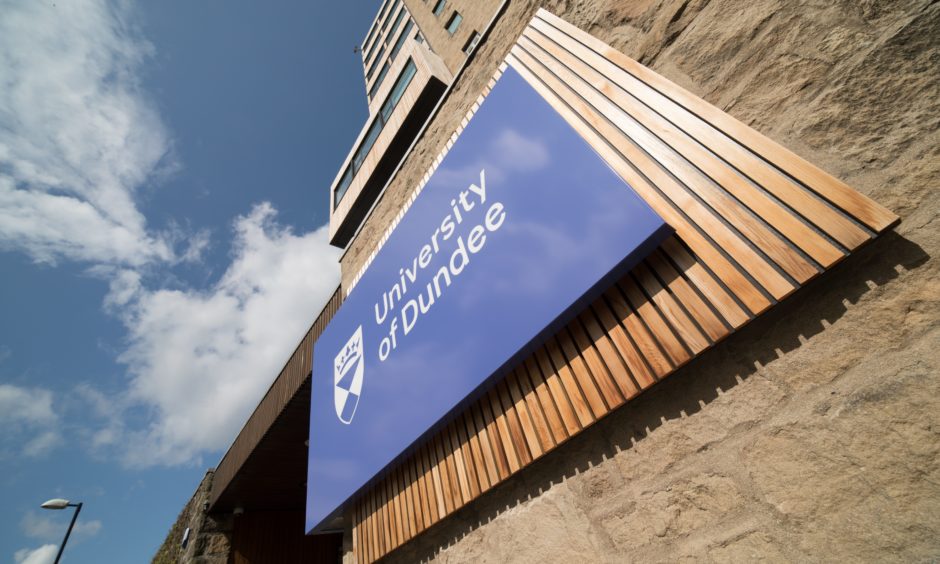
But when she retired she also started going to day and evening classes at Dundee University because she wanted to “see people and do interesting things”.
The university had a long and proud history of continuing education through its ‘Courses for Adults’ programme.
The highly valued general interest classes were populated primarily by retired people and also by younger students wanting experience to help them into full time academic courses.
However, just as Ann started to become involved, government changes to the education funding formula meant that the future of the then classes was under threat and they were to be replaced by credit-bearing assessed courses.
What did budget changes mean?
The main change, Ann recalls, was that budgets had become target driven, meaning that if a course didn’t have a qualification attached to it, the university was no longer funded to run it.
Determined that the classes were too valuable to lose, and that demand remained high, Ann and some of her fellow users and tutors used the Dundee University Courses for Adults Committee, led at the time by Philip Leckie, to campaign for the courses to be retained.
Initially they got a “very firm polite refusal” from the university, Ann recalls.
However, after persisting and insisting that demand remained, the university came back and said if the committee of volunteers was prepared to run the classes and deal with all of the administration, the university would give them accommodation free of charge.
That was in May 2017 – and the result?
The birth of Lifelong Learning Dundee
Lifelong Learning Dundee (LLD) – an independent not-for-profit organisation – was up and running by the September with the first classes taught by qualified tutors at the university’s Dalhousie Building held that October.
Now in its fourth year LLD aims to provide lifelong learning, personal development, leisure and general interest classes for the community in Dundee and the surrounding area in association with, but separate from, Dundee University.
It also promotes the cause and provision for adult education in general and collaborates with other bodies in promoting and providing educational support for adults.
They cover everything from the arts, cinema, creative writing and Dundee history, to genealogy, philosophy and photography.
Impact of Covid
When Covid -19 struck in March and the university was forced to close its doors, LLD was fortunate to have been joined by Dr Jenny Kermally, who with a long association with the Open University where she teaches philosophy, was well placed to help them tackle online learning.
Now, with all LLD classes currently being taught online due to Covid-19, perhaps they’ve really come into their own since summer 2020 as an intellectual and social lifeline to hundreds of participants – primarily in the Dundee and surrounding area, but also in recent months, around the UK and the world.
“Over the summer we gave all our tutors the opportunity to do their classes online,” says Ann.
“We ran a Zoom essentials class designed to help people overcome any issues with technology. A lot of our clientele are living alone and felt really isolated when classes stopped.
“In our first class in the summer, we tested the online set-up with philosophy. Our youngest participant was 19 and our oldest 90. It was his first attempt at a Zoom!
“But we really are a team effort with volunteers handling enrolments, marketing the courses, social media, evaluation and critically this year, technical support to support students and tutors online.
“The team includes retired medics, teachers, architects, a lawyer, an engineer, administrators and working lecturers who all bring an enthusiasm for lifelong learning to the task.”
The primary aim, as stated in the constitution, is to provide opportunities for people in Dundee and surrounding areas.
Fees are charged to cover the costs of tutors, and a few “loss leaders” have been invested in to get people interested and on-board.
However, events such as September’s free online public lecture called Shackleton’s Antarctic Doctors – hosted by Dr Paul Firth, a former Ninewells Hospital-based paediatric anaesthetist at the Massachusetts General Hospital, Boston, USA, and chaired by the “very helpful and supportive” Dundee University vice-principal Prof John Rowan – helped them realise that online, they could reach anyone anywhere.
A Haunted Holiday event in early December for the Dundee West End Christmas Festival saw people joining from Saudi Arabia, Budapest and the USA.
A woman also recently got in touch from Moscow having signed up to a creative writing course.
However, while some local participants miss the face-to-face classes and others are quite happy to stay in the warmth and comfort of their own homes, the classes have also crucially provided a “quite powerful social function” by connecting people and providing a regular focus.
‘Opening the mind’
Lifelong Learning Dundee treasurer Richard Firth says the courses have “totally opened” his mind.
With a “complicated” background that’s seen him live in Argentina, go to secondary school in England, study at the old Queen’s College, Dundee (when it was still part of St Andrews University), marry a Dundonian, live and work in South Africa for 30 years, and do projects in the Middle East, South America and India before retiring back to Dundee, he got involved in LLD when he was “looking for something to do” and thought he’d try a creative writing course.
“We had good social Christmas party one year and I got sucked in as treasurer!” he laughs.
Richard says using Eventbrite for tickets has been beneficial as they take care of booking administration and are very good at publicising events.
When it comes to the classes, however, the diversity of opportunity speaks for itself.
“I’ve been to quite a few creative writing classes,” he says, “but I’ve also been to others like astronomy.
“It’s completely opened my mind to all these other things I didn’t know about.
“I’ve also done African philosophy. Having been in Africa for 30 years, I’ve obviously got some views on things there. It was very interesting. You get all these sort of different things to broaden your horizons, and there’s a good range of lecturers.”
Creative writing success
Richard says participants in the creative writing classes get a “big fillip” through discussing each others’ work with a “real sense of community”.
Most do it for enjoyment. But there had also been a notable success when one of their participants – Alec Crawford, who lives near Balmerino, produced his first book Treasure Islands: True Tales of a Shipwreck Hunter after participating in one of the classes.
It tells the story of his diving adventures from when he started off in the Hebrides in 1971.
LLD has also tried to reach as wide an audience as possible in parts of Dundee where there might not traditionally be high levels of participation.
Last year when they were still meeting face-to-face, Richard did a postcode analysis of participants and realised there were parts of the city where people weren’t being reached.
LLD took an ‘outreach’ approach by holding classes in community education centres in the likes of Ardler and the Hilltown. Feedback was very positive, Richard says.
Tutors ‘knocking at the door’
But they also couldn’t do it without the tutors – some of who have been doing it for years while others come “knocking at the door”.
Some are younger lecturers who have been made redundant and are looking for work.
Others do it simply because they are passionate about their subject and enjoy speaking to a different audience.
They include Dundee University Emeritus Professor of the History of Political Thought Anthony Black, Trinity College Cambridge Fellow Dr Anthony Cox, freelance journalist Dawn Geddes, former Dundee city astronomer Brian Kelly and university Museum Services curator Matthew Jarron.
2021 and beyond
Looking to the future, Ann says it’s likely a balance will be struck between a return to face-to-face classes and online activities.
In the last year face-to-face year, they ran 57 courses and there were just under 1000 people registered.
But one thing’s for sure: LLD is very much a self-help team effort and none of the group of largely ‘third agers’ anticipated that when they campaigned four years ago to save the general interest classes falling victim to cuts at the university, they’d be meeting the Covid challenge with LLD online whereby people from around the world would be joining the local community in their classes.
*For more information about Lifelong Learning Dundee and their programme for 2021, go to https://lifelonglearningdundee.org.uk/
